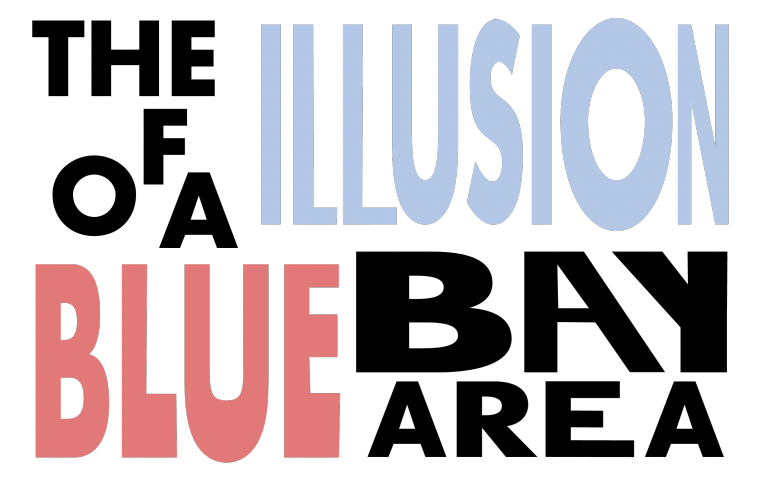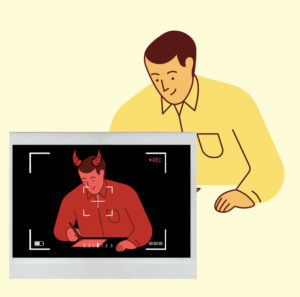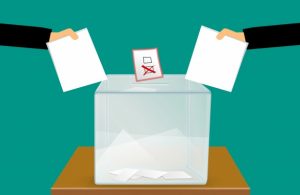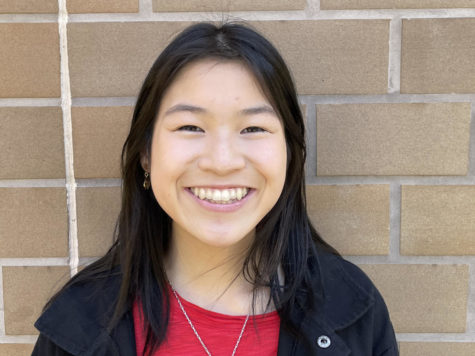The illusion of a “blue” Bay Area
Sam Minioza
Assuming that every Bay Area resident is socially progressive can create apathy toward the growing threats that marginalized communities face.
April 8, 2023
Recently I came across an Instagram account that made some disturbing—and blatantly false—claims. Among other issues, it argued 1) that the CDC and NIH “have no studies proving the safety of injecting aluminum” in vaccines (there are extensive studies), and 2) gender affirmation surgeries are actually “mutilation surgeries” promoted by “sexual groomers” (I hope it’s self-explanatory, but gender-affirming care is healthcare, period).
But the account is not run by a major far-right organization, nor is it based in a state that’s been in the news recently for pushing some of these claims. It’s a little bit closer to our community—in fact, it IS our community. The page, run by residents of our county, claims to “unite Contra Costa residents with the common goal to advocate for our children’s education.”
However, this “advocacy” equates to pushing ideas and legislation that result in the pain or oppression of others. In the past, it has encouraged followers to protest against AB 657, a bill that would prohibit students not inoculated against HPV (a vaccine that has been proven safe and effective) from going to a public school for eighth grade. More recently, it promoted a California assemblymember’s anti-LGBTQ+ legislation that would require schools to out transgender students to their parents, potentially risking the safety of innocent minors.
People that support these views could be our neighbors, our teachers or our friends. I don’t want to discredit the genuine kindness they may have shown me or others in the past, but it is terrifying to acknowledge that this dichotomy is present in our community. It’s not a secret that the majority of Contra Costa—like the rest of the Bay Area—votes blue. But equating this with the belief that our community is so progressive that residents are free from any sort of social or racial discrimination is not only naive, it’s dangerous. This assumption (or, for some, a romanticization) ignores the daily, constant struggle that marginalized communities face, right here in our own backyards. It was evident in the Mar. 9 incident in which racist content about Black DV students was posted on Instagram and last December, when a man was charged with a hate crime for verbally harassing Asian customers at In-N-Out.
Even at Dougherty, the population is likely less “blue” than you’d think. In seniors’ AP Government classes, students have had to take political typology quizzes to determine their generalized place on the political spectrum. In data from four classes, over 10% of students in each class reported their results as right-of-center, while classroom debates further prove our student body’s differing views.
This 10% of students may be perfectly courteous to their classmates who are queer, or who don’t have U.S. citizenship, or to immunocompromised peers who are endangered by those refusing to get vaccines. It’s certain that we have students at our school who personally consider themselves to be “socially progressive Republicans” and the like, and I’m not here to discount their personal labels. But many of these students will turn around in a couple of years and vote for candidates who aim to limit or infringe upon the rights of those same communities. It’s a natural consequence of our catch-all party system, but a harmful one. People may vote for a candidate solely because the candidate’s economic beliefs align with theirs, as opposed to their social beliefs, but it won’t change the fact that every vote for that candidate inherently supports all of their policy positions. This sort of cognitive dissonance (or inconsistency between one’s ideals and actions) has a real-world ripple effect from the individual, to the candidate, to the passing of laws like the ones mentioned above. It perpetuates indefinitely.
It’s encouraged in our culture to befriend those with differing political stances—or to not discuss politics at all—but trying to be all buddy-buddy with someone whose views include denying the rights of others is where many draw the line, and rightfully so. The majority of people (I would hope) would want to be friends with those who agree with basic human decency and morality. If all of those people just so happen to vote liberal, then so be it. (I’d also suggest reading the incredibly insightful column by past Editor-in-Chief Armaan that explains why the mainstream media’s “liberal bias” does not make it any less truthful.)
I know it’s easy to consider yourself socially progressive in a place where that is considered the norm, but it ignores the decades of hard work that brought us here. For example, it wasn’t until 2021 that the state government formally apologized and offered reparations to the descendants of some of the hundreds of majority Mexican-American and Black residents of Pasadena that were forcibly displaced during the construction of Interstate 210 in the 50s.
Being mindful of these issues happening in our own neighborhood will prevent us from becoming complacent and taking our privileges for granted. We are lucky to live in an area with a diverse (not only ethnically, but culturally and socially as well) population. So let’s use this opportunity to start conversations with one another rather than just placating and assuming that no change is necessary anymore, that our work here is done, that marginalized people aren’t suffering right beside you.
There will always be a political spectrum as broad as there are people in the state. But only once we acknowledge this fact can we work to preserve and expand the freedoms offered to all of them. I’m not saying we need to change the world. We just need to care.




